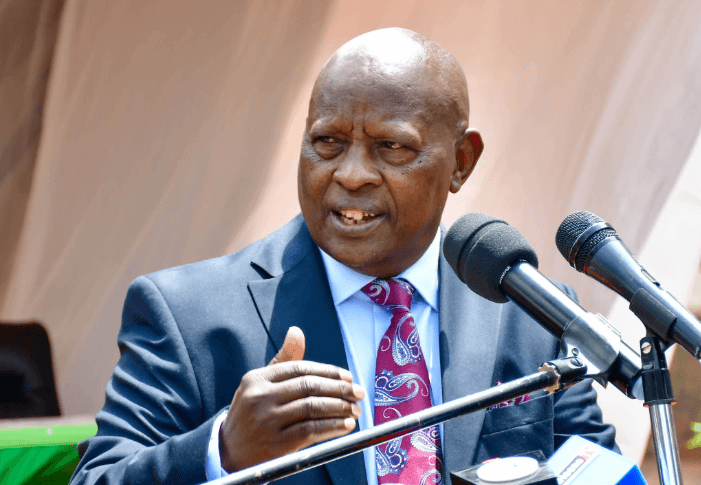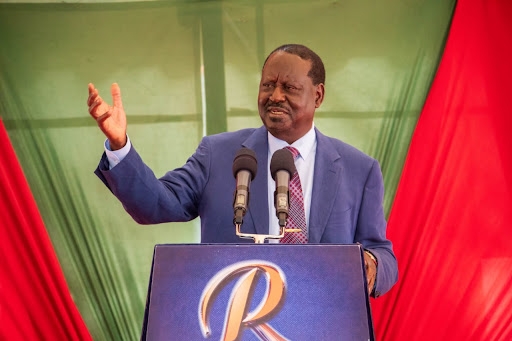Kajiado Governor Joseph Lenku has set the pace for the Amboseli National Park takeover after gazetting his technical team.
Lenku published the members of his technical committee team led by his deputy, Martin Moshisho on Monday.
“Under Article 179 of the constitution of Kenya, 2010, Section4(a) of the Wildlife and Conservation Act 2013 and Section 30 (2) of the County Government Act, 2012, it is notified to the general public that the governor has established a county Amboseli Technical Committee,” the gazette notice said in part.
He said the purpose of the technical committee is to oversee the transfer and management of Amboseli National Park from the national government to the county.
This should take effect on the date of the establishment of the committee.
Lenku's team, which will be chaired by Moshisho, will have John Kamanga, Joel Nyika, Jackson Mwato, David Western, Verah Moraa, Jackson Mpario, and Augustine Sekeyian as members.
The gazetted team is made of county government officers and representatives from the conservation stakeholders.
"The technical team shall, before embarking on its duties, subscribe to such oath of confidentiality and such other oaths, as may be prescribed, the gazette notice said.
Kenya Wildlife Services spokesman Paul Jinaro yesterday said the presidential directive on transfer of Amboseli National Park to Kajiado county will be implemented to the latter.
Jinaro said KWS has not yet gazetted the names of its team to be involved in the process of the changeover.
President William Ruto in August said national government will return the management of Amboseli National Park to Kajiado.
Ruto directed the Tourism CS to expedite the process with Kajiado county.
He made the remarks during Maa cultural week at Sekanani in the world-famous Maasai Mara Game Reserve in Narok county.
An attempt by the government to return the national park to the people of Kajiado in 2005 hit a snag when various conservation organisations teamed up to oppose it.
In 2005, the Kenya government proposed to degazette Amboseli National Park, one of Africa’s spectacular sites of global significance, into a game reserve, contravening the procedures set out in the country’s Wildlife Act.
After a five-year campaign, spearheaded by Nature Kenya (BirdLife in Kenya), a High Court reversed the decision, declaring the move to ‘de-gazette’ Amboseli illegal.
On September 28, 2005, former President Mwai Kibaki asked the Minister for Tourism and Wildlife to publish Legal Notice 120 in the Kenya Gazettement Supplement No. 20, declaring that Amboseli National Park will subsequently become a Game Reserve.
This meant that the management of the park was removed from the Kenya Wildlife Service and placed in the care of the Olkejuado County Council, at the time.
Concerned that this change in protection status would result in increased human use and negative impacts on biodiversity, civil societies such as BirdLife in Kenya, Born Free Foundation Kenya, the East African Wild Life Society, and the David Sheldrick Wildlife Trust opposed the move.
Others were Youth for Conservation Kenya, the East Africa Environmental Network, and the Kenya Tourism Federation and Wildlife.
In their view, the degazettement of the national park was illegal and would have far-reaching and potentially devastating effects.
Wildlife tourism is one of Kenya’s main sources of foreign revenue.
Amboseli at the time was bringing in about $3.3 million (Sh 495 million) a year from park fees and related tourist activities.
Many believed this money would be jeopardised if Amboseli’s National Park status was lost.
The civil societies filed two cases at High Court of Kenya. First case challenged the government's decision to degazette the park without following due process of the law as set by the Wildlife Ac.
Second case asked the court to set an injunction on the decision so that Amboseli would remain a national park under the care of KWS until the case was determined.
The case has gone through a long and protracted process, but, in 2010, the High Court of Kenya finally overturned the order to ‘downgrade’ Amboseli National Park to a game reserve, ruling that the move was illegal.
The process was a testament to how civil societies could stimulate public debate and challenge actions that threaten biodiversity.












